The night before the second anniversary of the beginning of the full-scale war in Ukraine, Yelyzaveta Drach, VU Ukrainian language lecturer, under her artistic name of ummsbiaus will present an audio-visual electro-noise-folk performance which will immerse spectators into kind of a deep sleep. The event is planned for 23 February, 7 p.m at Filologijos fakultetas, Repšys's Hall (Aisčių menė).
The places are limited, so if you are planning to come, we kindly ask you to be registered via Google Forms >
Free entrance by registration only.
Location: Vilnius university, the Repšys's Hall (Aisčių menė).
Date: February 23 2024, 19.00.
Duration: 1 hour.
We asked Yelyzaveta a few questions about the performance's idea, her creative process and choice of the technique.
What is your performance „The Night Before“ about?
For many years I’ve been experiencing some kind of a foreboding, a premonition that could give a certain hint about my future choices. Many people believe that in dreams our brain processes not only impressions of what was seen over the day, but also suggests the scenarios for the future.
„The Night Before“ will be held on the evening before the beginning of the full-scale invasion to recreate the ambience of the last peaceful evening in Kyïv, two years ago, on February 23 2022. Using audio and visual channels I will try to transfer the equivocal sensations that could be felt on that night: fear mixed with hope, anxiety mixed with calm, and daze mixed with rage. This ambiguity is the best way to shortly describe my upcoming electro-noise-folk performance, on which I was working for quite a long time, as it grew from all the musical works I released within these two turbulent years.
During this time I’ve created a lot of things to fight my own anxiety and tell stories about the ongoing war in Ukraine and share them here, in Europe, while I am so far away from home. This performance won’t be an exception. Even though it is more metaphorical and symbolic, it will contain all the emotions I’ve been experiencing since that time. Besides the remixed pieces taken from my debut album Enerhomor, a work totally based on the sounds of electricity (like electricity meters, sounds of power stations and electricity transformers), my latest work Snovyda (Sleepwalker) Suite, where I experiment with sound perception during four stages of the sleep cycle, I also plan to perform some tracks from my upcoming collaborative work created together with Ukrainian experimental musician Difference Machine.
In your performances you combine audio-visual techniques. Could you tell us more about the creative process behind it?
The night before the beginning of the full-scale invasion was one of the most anxious nights in my life. The nightmares pictured in my head were totally indescribable to the extent that I cannot even call them “visions”'. It was this thin line between a vision and a sensation. Long after that night, when I moved to Vilnius due to the full-scale war in Ukraine, I restarted sketching in my black&white style, after an almost three-year pause. Those visuals I created were my own way to transform the sensations of the ongoing war into a kind of emotional liberation, put on paper. And, not less important, I always was drawing while listening to my own music, so the visuals were totally inspired by the sounds.
For me, audio and visual components of an artwork always come together. They form a unique time-space continuum and are truly able to generate a totally new world. In this performance called „The Night Before“ I play a lot with kaleidoscopic visuals changing their form, texture and colour according to the mood of the track they accompany, as if they are some kind of cells going through the stages of meiosis to reproduce themselves but in a different way. This is how, as for me, music evolves from any existent sound taken from the real world.
In the description of the performance, you say that it will “… immerse spectators into kind of a deep sleep“. Why did you choose this almost meditative approach?
This approach is directly connected to my latest work released on all musical platforms, Snovyda (Sleepwalker) Suite No. 1, Op. 4, a very personal story that came from my long-term sleep issues. I chose the suite as a format because it usually consists of four movements which perfectly matches the sleep cycle. I've been experimenting with the perception of sounds while falling asleep for a long time. In fact, many of us have experienced falling asleep to music. But if you want to feel this specific distortion of sounds and remember it, you need to fully tune in. In this state, the sound floats, like on an old film, and the tonality can change. It's as if the brain is doing its own mixing of the track: the vocal parts are loud and soft, the sounds flow from one ear to the other.
In addition to the sounds, as I already mentioned above, an important component will be my drawings, which will accompany the whole performance. All of those are to some extent related to the state of hypnagogia which is a transitional state from wakefulness to sleep. This is also a certain transition between two feelings: anxiety and tranquility. The main visual attribute is the prism effect, which can be heard in the kaleidoscopic glass sounds.
I always choose a meditative approach because creating and performing music for me is some kind of my own therapy. When I am overwhelmed with anger and pain I need to process those feelings into sounds which would be able to make people feel what the war can bring in the minds of ordinary people who experienced it. We all know that people are able to believe something only once they have felt, seen and heard that. So my purpose is to immerse the spectators in this specific state of mind.
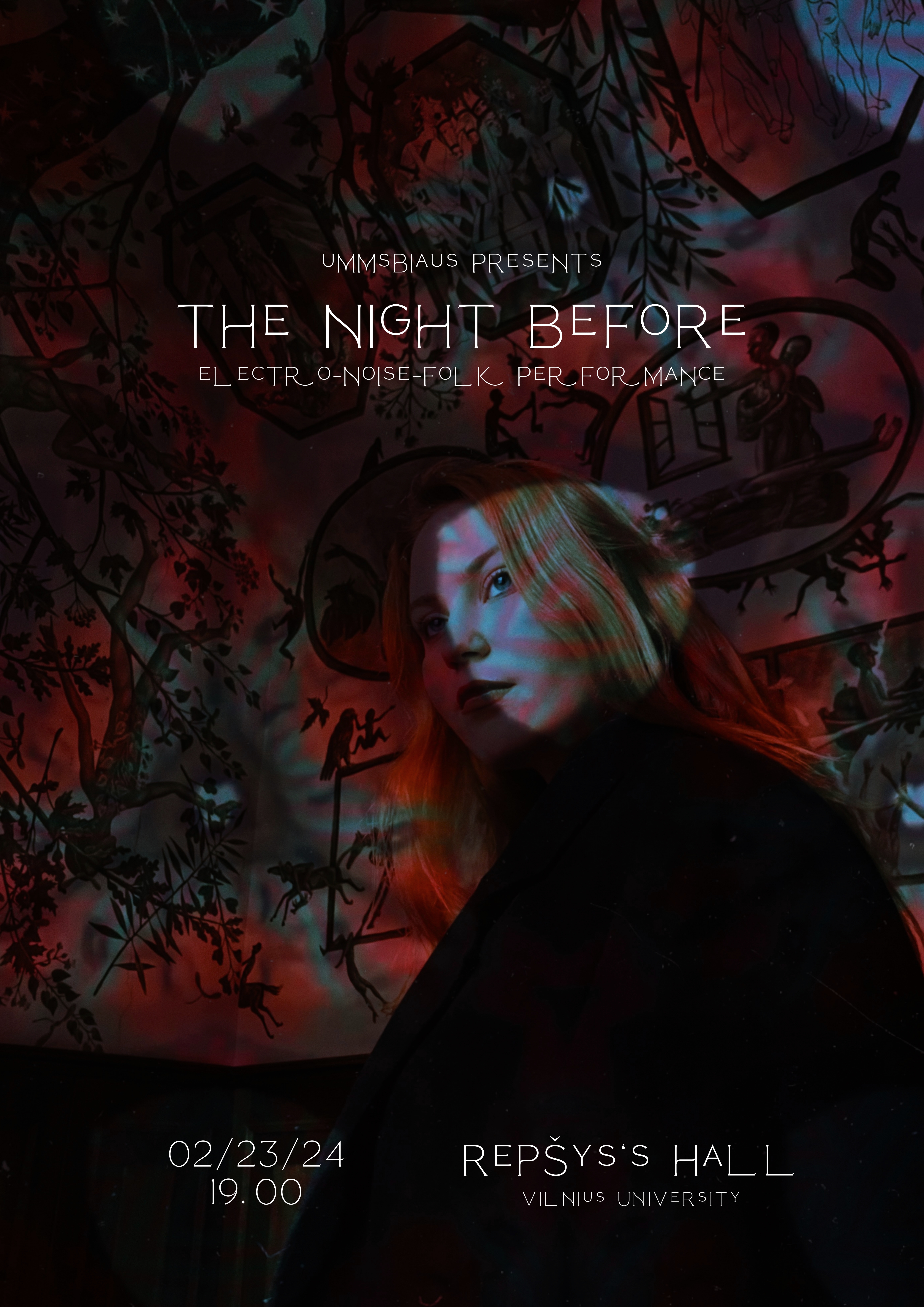
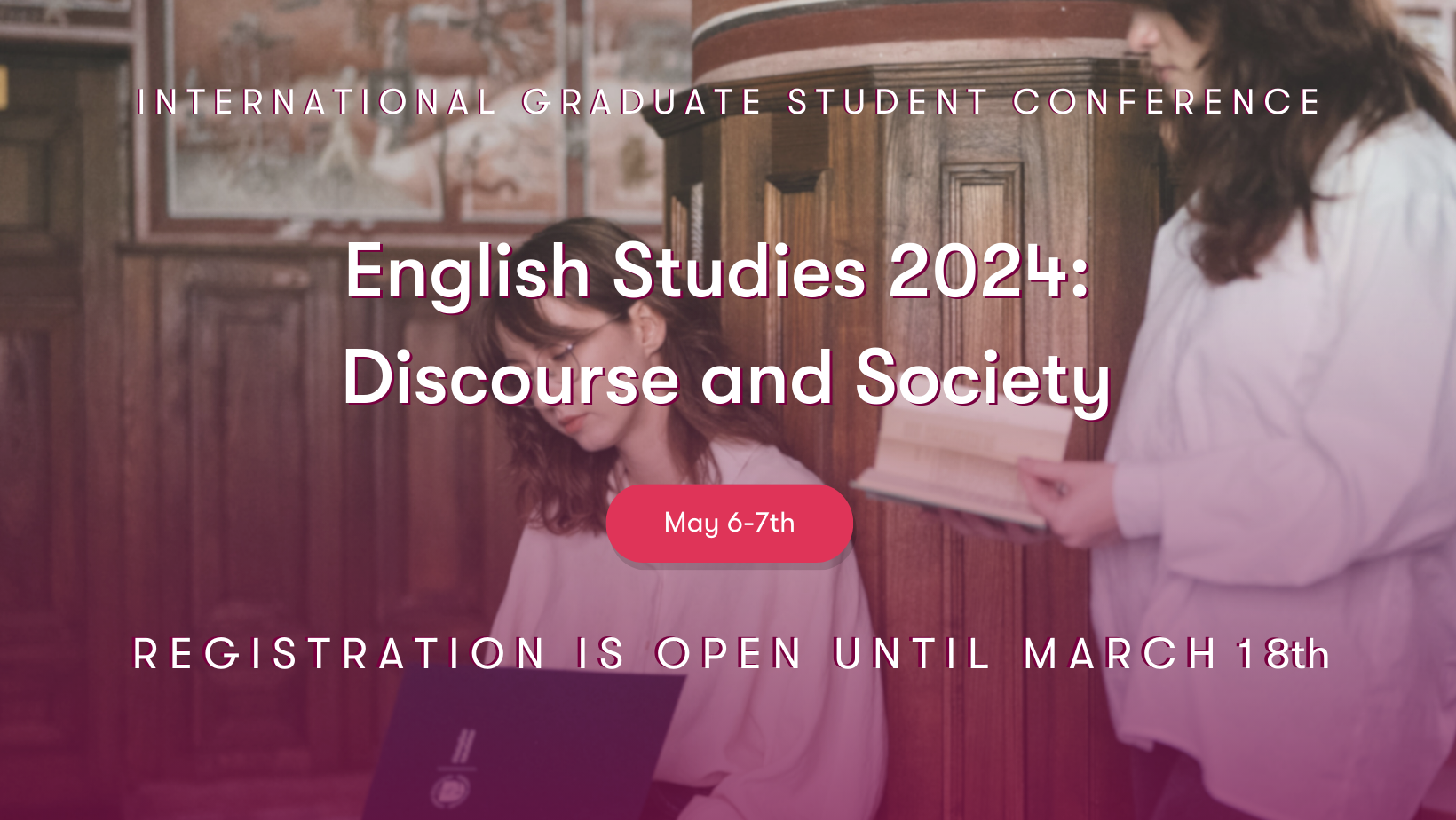

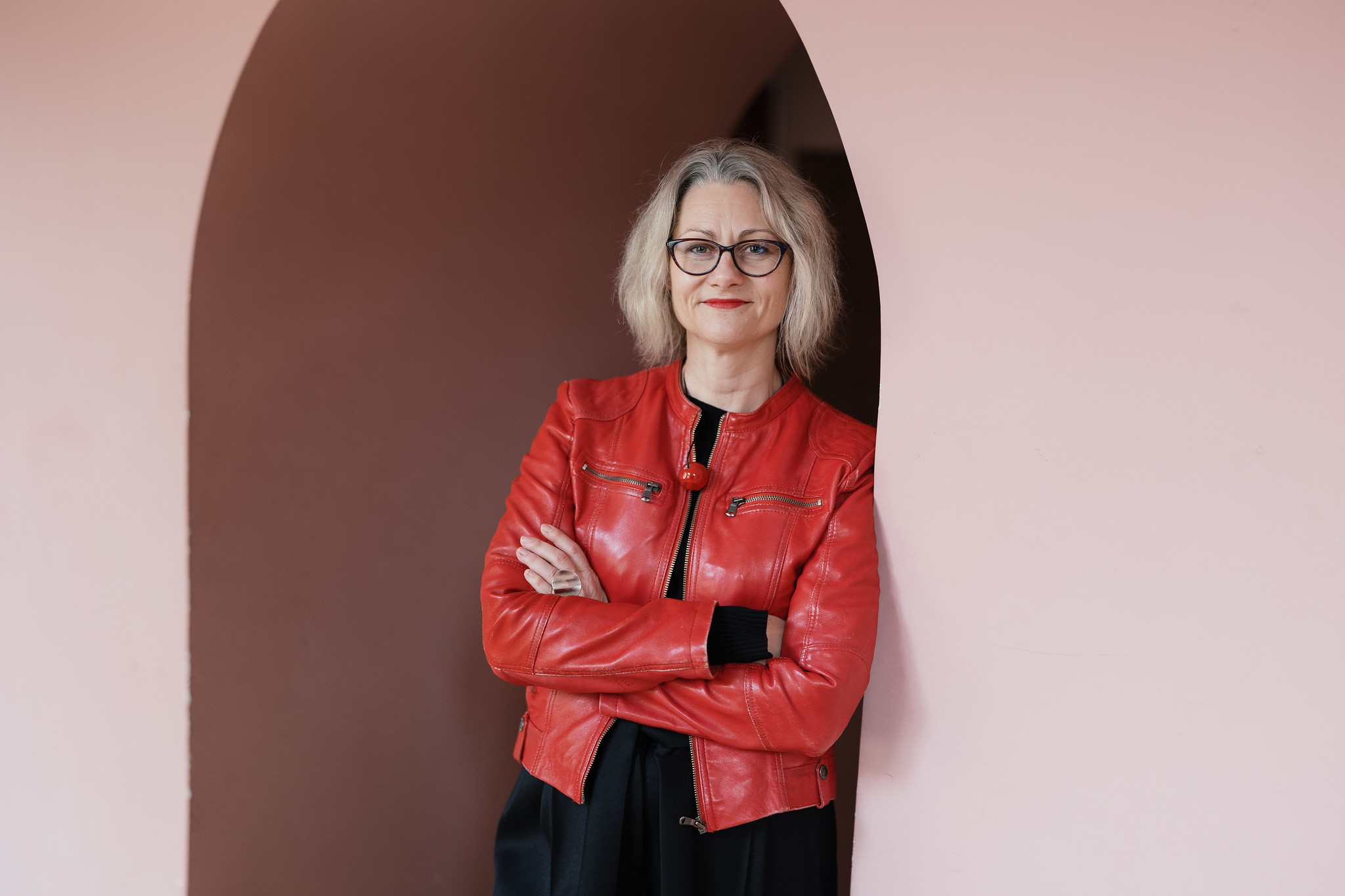
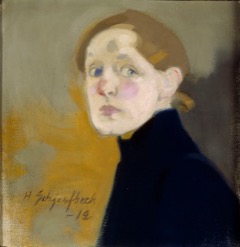 Helene Schjerfbeck (1862 –1946) is one of the luminaries in Finnish art. Today, she is the best-known female artist from Scandinavia from the turn of the 19th and 20th century. She was one of the few artists of her generation who both created masterpieces in her Naturalistic and Impressionistic style and was also able to shift to an entirely Modernist mode in the 20th century. In both periods she was successful.
Helene Schjerfbeck (1862 –1946) is one of the luminaries in Finnish art. Today, she is the best-known female artist from Scandinavia from the turn of the 19th and 20th century. She was one of the few artists of her generation who both created masterpieces in her Naturalistic and Impressionistic style and was also able to shift to an entirely Modernist mode in the 20th century. In both periods she was successful.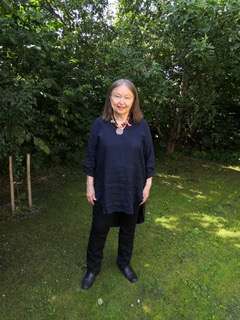 Leena Ahtola-Moorhouse MA is an art historian and was chief curator at the Ateneum Art Museum, Helsinki until 2013. She has written widely on Finnish art from the 19th and 20th centuries. She was invited as a scholar to the Weisman Art Museum, University of Minnesota, U.S.A. in 2000. She has curated many exhibitions especially on Finnish women artists. She is known as a specialist on Helene Schjerfbeck’s art. The Helene Schjerfbeck retrospectives in 1992 and 2012 were curated by her.
Leena Ahtola-Moorhouse MA is an art historian and was chief curator at the Ateneum Art Museum, Helsinki until 2013. She has written widely on Finnish art from the 19th and 20th centuries. She was invited as a scholar to the Weisman Art Museum, University of Minnesota, U.S.A. in 2000. She has curated many exhibitions especially on Finnish women artists. She is known as a specialist on Helene Schjerfbeck’s art. The Helene Schjerfbeck retrospectives in 1992 and 2012 were curated by her.
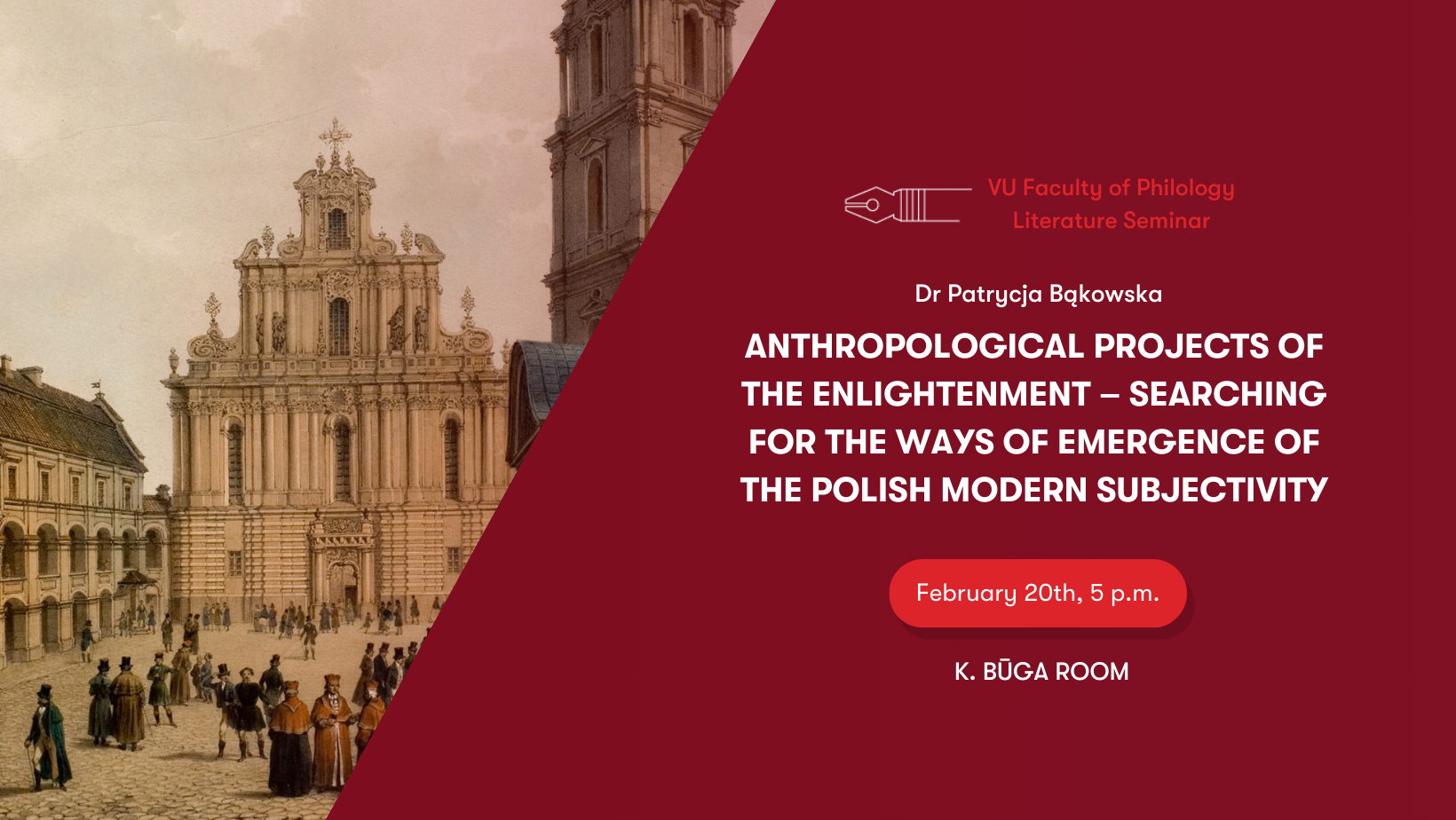
 Björn Meidal, professor of Literature (emeritus, Uppsala university), prominent researcher of August Strindberg life and work will be visiting Center of Scandinavian studies on 12-13th February. The visit is organized with the support of the Swedish Ambassy in Vilnius. Prof. Björn Meidal will deliver two lectures:
Björn Meidal, professor of Literature (emeritus, Uppsala university), prominent researcher of August Strindberg life and work will be visiting Center of Scandinavian studies on 12-13th February. The visit is organized with the support of the Swedish Ambassy in Vilnius. Prof. Björn Meidal will deliver two lectures: